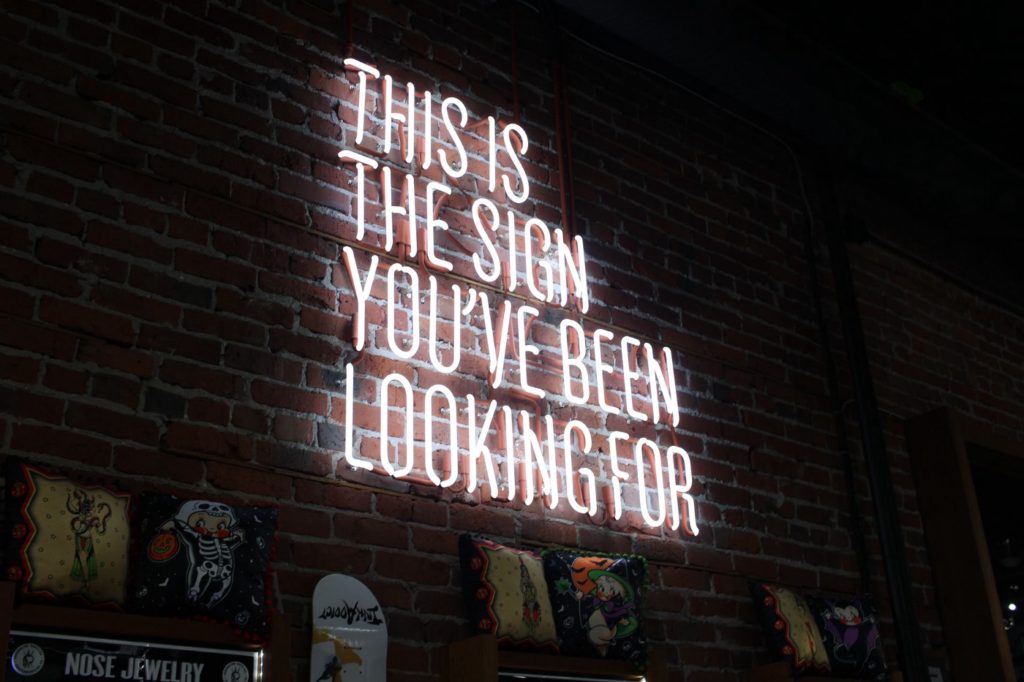Your brand is the story of your business. It’s what customers remember about you, and it’s what helps them identify your products or services in a crowded marketplace. As your business grows and evolves, so should your brand. But when is the right time to update your branding? And how can you do it in a way that will be successful?
I had been contemplating updating my brand. When I started my freelancing career I tried to be “professional.” I created a bland, but professional website, and started working on Fiverr and Upwork.
As I started to analyze my brand presence, I realized something very important was missing. Me.
I’m always telling brands that their story is what makes them unique, what drives engagement and sales. I can look at any brand and see where they need to go.
I can not do that with my own brand well.
So I did a complete web redesign. I focused on my passions, the things I loved. And I almost got it right. What did I forget? My superpower. I can look at any bit of information and find the story. I’m a writing detective. I’m also hopelessly in love with Sherlock Holmes.
I also realized that I wasn’t serving myself well with my website. I get great compliments on my portfolio, which remains incomplete, but I don’t get the conversion I’m expecting. I’m still not telling my brand story. The passion behind what I do was still missing.

What is brand storytelling and why is it important
Storytelling is one of the oldest forms of communication. Since the dawn of humanity, we have used stories to teach lessons, convey meaning, and entertain one another.
In modern times, storytelling has taken on a new role: marketing.
In a world where consumers are bombarded with advertising messages on a daily basis, businesses must find ways to break through the noise and connect with their target audience on a deeper level. Brand storytelling is one tactic that can be used to accomplish this goal. By crafting compelling narratives that align with their brand identity, businesses can create an emotional connection with their customers and build loyalty and trust.
In a world where information is readily available, it is increasingly important for businesses to tell their story in a way that resonates with consumers. Those who are able to do so will be well-positioned for success in the years to come.
How to create a brand story that resonates with your customers
Your brand story is the heart and soul of your business. It’s what sets you apart from the competition and resonates with your customers on a personal level.
But how do you create a brand story that is both unique and relatable?
Start by identifying the key themes that define your brand. These could be things like innovation, family values, or a commitment to excellence. In my case, it’s the detective work of writing. I love applying writing to new learning.
Once you have a good understanding of your core values, you can start to craft a story that reflects these ideals. Be sure to focus on creating an emotional connection with your audience, and avoid being too salesy or self-promotional. If you can strike the right balance, you’ll have a brand story that resonates with your customers for years to come.
The benefits of brand storytelling
In today’s competitive marketplace, your brand story is what helps you stand out from the crowd. One increasingly popular method is brand storytelling. By creating an emotional connection with their customers, businesses can build loyalty and differentiate themselves from their competitors. Additionally, brand stories can help businesses to connect with their customers on a deeper level, creating a stronger bond that is difficult to break. Brand stories can be used to shift customer perception, increasing the likelihood that they will view the company in a positive light. In today’s business environment, brand storytelling is an essential tool for any company that wants to succeed.
Indeed said, “Brand storytelling is important because it offers companies the opportunity to personalize their brand and form a deeper connection with their customers. Developing a successful brand storytelling strategy can help your audience learn more about your brand, your purpose and your products.”
Tips for telling your brand story in a way that engages customers
As any marketer knows, a good brand story is essential for engaging customers and building loyalty. But what makes a brand story truly effective? Here are a few tips:
First, keep it concise. No one wants to hear a long-winded story that goes off on tangents.
Second, make sure it’s relatable. Customers should be able to see themselves in your story.
Third, use humor sparingly. A little bit can go a long way in making your story more memorable and relatable.
Fourth, be authentic. Your story should be genuine and reflect your brand’s values.
Fifth, focus on the positive. Customers respond well to stories that evoke positive emotions.
How to keep your brand story relevant
As your business grows and evolves, so too should your brand story. After all, it’s important to keep your story fresh and relevant if you want to continue engaging customers. Here are a few tips for keeping your brand story current:
First, revisit your core values on a regular basis. As your business changes, your values may change as well. It’s important to keep your brand story in line with your current values.
Second, monitor customer feedback. What are customers saying about your brand? How have their perceptions changed over time? Use this feedback to adjust your brand story accordingly.
Third, stay up to date with industry trends. What’s happening in your industry that could impact your brand story? By staying on top of trends, you can ensure that your brand story remains relevant.
Should I just update, or go with a full name change and everything?
The answer to this question depends on a few factors. If your brand story is still relevant and resonating with customers, then a simple update may be all that’s needed. However, if your brand story is no longer relevant or you feel like it’s time for a fresh start, then a full rebrand may be the best course of action. Ultimately, the decision comes down to what’s best for your business. If you’re not sure which route to take, consult with a branding expert who can help you make the best decision for your brand.
I ended up going with a full rebranding.
Timing is everything. I have actually said this before.
Timing is everything when it comes to brand updates. You don’t want to wait too long and risk becoming outdated, but you also don’t want to update too often and risk seeming like you’re chasing trends. By following the tips in this post, you can find the right balance and ensure that your brand always remains relevant and engaging.
According to Forbes, here are five tips to know if it’s time to rebrand.
To help, here is a list of the top five indicators that it might be time to rebrand your business.
• Your core audience has changed or is rapidly changing, and you’re concerned the current brand isn’t positioned to resonate with them.
• Your business model, core offerings or overall strategy has changed.
• The industry you are in is rapidly evolving, and you’re concerned that the current brand is headed toward being considered dull, uninspiring and outdated, especially compared to the competition.
• Your business name is overly literal or you have general identity problems.
• You’ve outgrown your own brand. What you are today — and, more importantly, what you aspire to be tomorrow — is different from what your brand once was.






